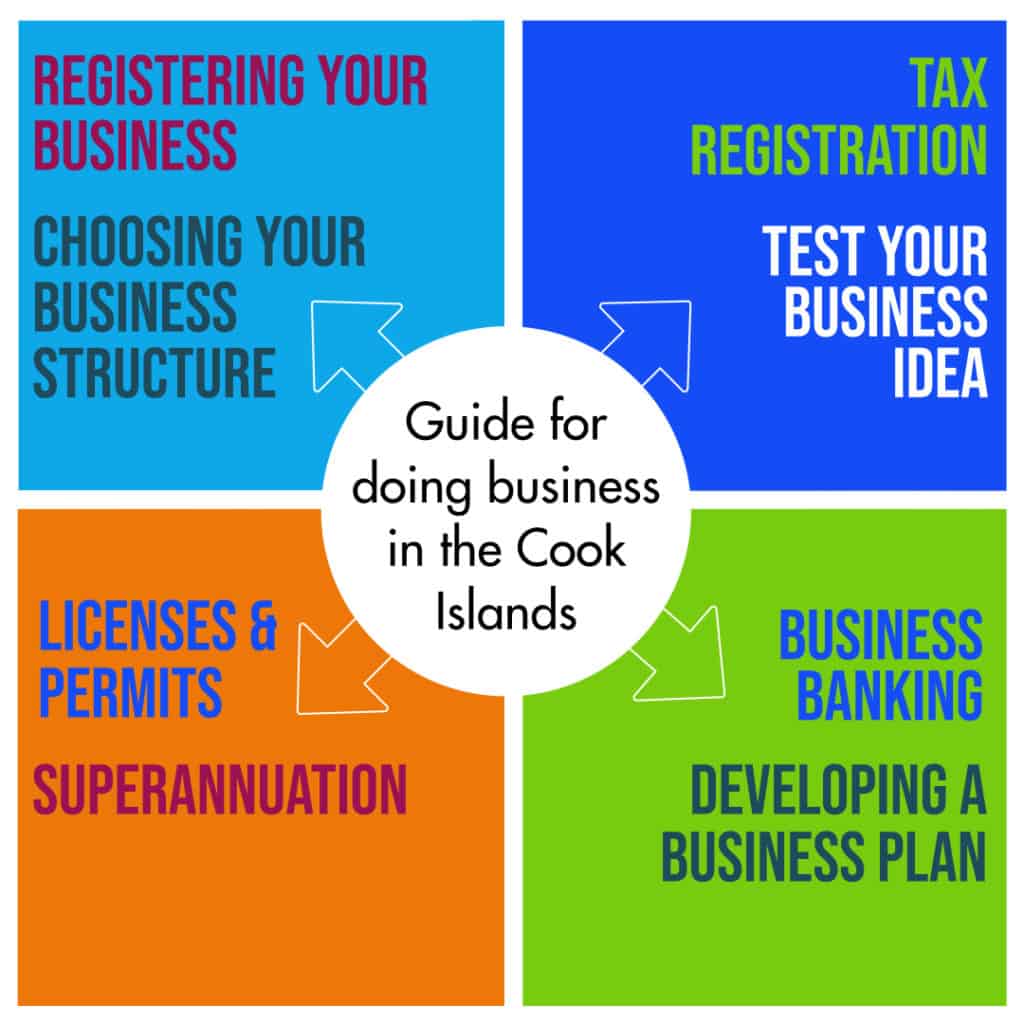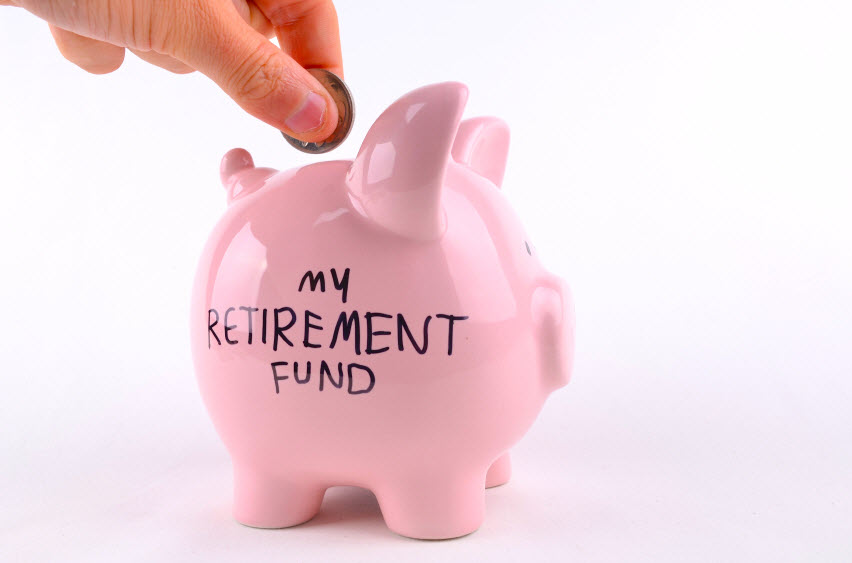

Business Trade & Investment Board (BTIB) is committed to supporting your new business venture and we want to work together with you to get the best outcome. After all, we want you to be successful. Our Cook Islands Government would like to encourage indigenous Cook Islanders to start your own business and by doing this, you will be creating opportunities and contributing to the Cook Islands’ economic growth. Well done for taking the first step!
With an easy-to-navigate website, the Business One Stop Shop is the go-to resource that connects and guides you through all stages of development — from planning and startup to operating and expanding your business. Whether seeking information about registering a business, taxes, business banking, startup business resource, and more, BTIB’s Business One-Stop Shop can help provide some answers to your business-related questions. Please note: The information provided in this section serves as a Guide Only and a resource for those looking to start a business in the near future.
Below is your starting point.
1. Business Compliance
2. Registering your Business – Sole Trader | Partnership | Limited Liability Company
3. Choosing your Business Structure
4. Other Licenses or Permits you may need for your Business
5. Tax Registration, PAYE, Income Tax and how to register for an RMD number
6. Testing my Business Idea
7. Keeping Records for your Business and Tax purposes
8. Starting a Business Plan
9. Business Banking
10. Cook Islands Superannuation
Want a PDF copy of this? Here you go! We’ve made it easier for you – download the Business One Stop Shop – A Business Guide.
This section will help outline some of the standard laws and regulations that a business is required to comply with like taxes, business registration and more. Business compliance is the process of making sure your business and employees (if you have employees) follow the laws, regulations, standards, and ethical practices that apply to your business. This guide is also intended to be used as a supporting resource.
Why Register your Business?

These are some good reasons why you should consider registering your business. It makes the business real for you and keeps you focused: Having a formal business will encourage you to dedicate your energy towards it. You can be proud of the fact that you’re a business owner – it’s no longer just an idea or a hobby.
If you have know what business structure you want for your business, choose the options below to help you get setup.
Are you setting up a Limited Liability Company (LLC)? Click below to help you setup as an LLC.
What business structure do you plan to use?
Are you a sole trader? Partnership or Company?
The legal structure you choose for your business will impact your business registration requirements, how much you pay in taxes, and your personal liability. Choosing the right structure for your business is important. Click on “Choose your Business Structure” for more details to help you decide. Use this as a guide only.
Will you need licences for your business?
Depending on your type of business, you may need a liquor licence, a food licence and other licences.
Take a look in this section to find the licences, registrations or permits that apply to your business type and industry. View our checklist just to make sure you have all the correct licences or permits.
What you pay and when you pay it depends on how much you earn, your business structure and whether or not you have employees. When you have decided on what type of business you are; Sole Trader / Partnership or Company, there are things you should consider when it comes to paying business taxes.
This section can help you understand Tax Registration, PAYE (Pay as you earn), Income Tax, and how to register for a RMD number. Follow these steps to help you get familiar with Taxes in the Cook Islands.
You have a great idea and want to start a business. But do you have what it takes to make it a success? Every year, more new small businesses fail than succeed. But that shouldn’t stop you — test your idea and yourself by answering these questions. This is a Guide to help you start your Business.
Every business must keep records for as long as required by the law. It is important to do so as MFEM may request to see past records if there is any issue regarding your tax.
Make sure you keep all documents that contain details of payments, receipts, purchases and sales, business assets and liabilities. We have provided you with a few tips on how to keep records for your business.
A good business plan guides you through each stage of starting and managing your business. The purpose of a business plan is to help you get organized and plan what you want to achieve including your important business goals and objectives.
Good business plans are usually detailed and include information on all aspects of your business, including the industry, marketing, finance like cashflow and/or sales forecast, personnel and a SWOT (Strengths, Weaknesses, Opportunities & Threats) analysis. It will also help you understand how you are tracking.
There are many things that you have to consider when you are growing your business and you want to use a bank for your business transactions. You may have already had your own personal bank account and may have used it temporarily for your business. We highly recommend that you upgrade or set up a new business bank account. Here are some tips to help you get started when opening a business bank account.
The Cook Islands National Superannuation Fund (CINSF) is a an important part of the Cook Islands policy on retirement income. The policy is a traditional three pillar approach consisting of:


CINSF is compulsory for you and your employees. To find out more information, click below.

Business Trade Investment Board
Opposite the Punanga Nui Market
Ruatonga
Avarua Rarotonga
Cook Islands
Telephone: +682 242 96
Fax: +682 24 298
Private Bag, Rarotonga, Cook Islands.
Email: btib@cookislands.gov.ck
Monday – Friday
8am – 4pm
Closed: Saturday and Sunday
Statutory Holidays